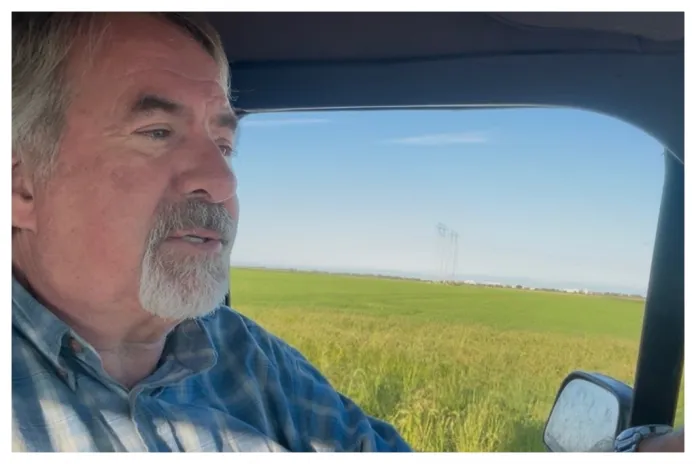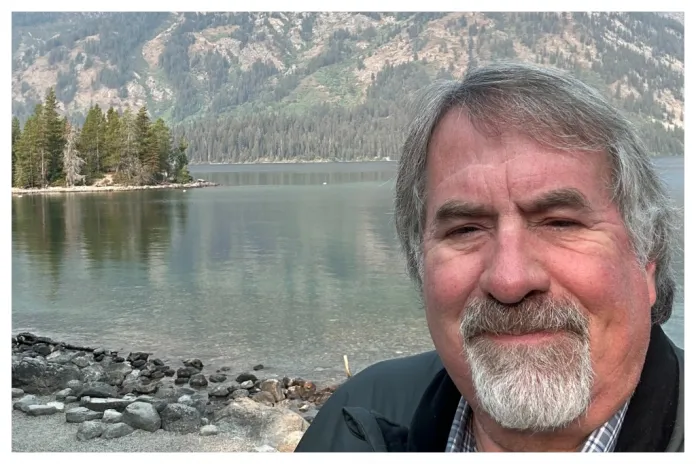SAN DIEGO — Rep. Doug LaMalfa (R-CA) had no intention of getting into politics. The fourth-generation rice farmer from Richvale, California, started out by putting up posters in his spare time for a cousin who was running for county supervisor.
“I was happy to be the sign guy,” LaMalfa told the Washington Examiner, noting that he worked his way up to putting up signs for candidates running for Congress, governor, and even president. LaMalfa eventually moved from campaigning for others to running himself.

The day the Washington Examiner spoke to him, he was on a tractor, working on his rice farm. The folksy lawmaker, who gives his team nicknames and jokes that he’s a tough boss, got serious when talk turned to redistricting.
LaMalfa was elected to the California Assembly in 2002, the state Senate in 2010, and then the U.S. House in 2012. After serving in Congress for seven terms, LaMalfa is about to enter the biggest fight of his political life.
Democrats have long targeted his seat, but their chances could soon improve drastically.
If the new congressional districts proposed by Gov. Gavin Newsom (D-CA) and state Democrats are approved by voters in Tuesday’s special election, LaMalfa could be in for an uphill battle for reelection next year. California’s Proposition 50 was triggered in response to President Donald Trump telling Texas legislators to change the state’s map to give Republicans a five-seat advantage in next year’s midterm elections. Since then, other GOP-led states, including Missouri, North Carolina, and Utah, have followed suit. There are a handful of others that have either started the process or indicated they were looking into redrawing their maps.
Unlike Texas, where state lawmakers have control over drawing the state’s congressional map, California’s process is more complicated. Its constitution requires that an independent redistricting commission draw the map and that voters approve any changes. That means even though the state legislature passed the proposed map, voters will decide on Tuesday whether it will be used for the 2026, 2028, and 2030 elections.
If voters greenlight it, it would put three Republican-held seats into safe Democratic hands and turn two others into those that lean Democratic. Specifically, the map would change districts held by LaMalfa and Rep. Kevin Kiley (R-CA) in Northern California. In Southern California, Reps. Darrell Issa (R-CA) and Ken Calvert (R-CA) would be at risk, and in the Central Valley, Rep. David Valadao (R-CA) would have a much harder time getting reelected if the map is passed.
LaMalfa represents California’s 1st Congressional District, which, in its current form, sweeps south from the Oregon border almost to Sacramento. It covers the rice fields, walnut and almond orchards of the Sacramento Valley to the forested foothills of the Sierra Nevada and the Cascade Range. The vast majority of the residents are farming families who have harvested the land for decades. The rural district is among the most conservative and least diverse in the state.
If Proposition 50 passes, the district would be split into two. The new 1st District would be redrawn to include Democratic voters in Santa Rosa through Chico, a university town, to the Nevada border. It would also turn LaMalfa, an incumbent who won reelection last year with nearly two-thirds of the vote, into an underdog.

“This is a complete and naked power grab by Newsom,” LaMalfa said. “The census isn’t broken. The lines aren’t broken. We could wait five more years to redefine mine. I realize everybody’s moving out of California, and maybe the population has shifted a little bit, but you wait for that. You wait for a census process. They didn’t. They didn’t do a new census in order to make cleaner districts. They’ve just made it 10 times worse. These were hand-drawn for legislators already picked, and it’s going to cost the California taxpayers about $300 million, and then the counties themselves have to pay for the cost of running their election.”
LaMalfa fears that if the new map passes, it would silence the voices of rural voters who are already struggling with representation in the heavily Democratic state.
That is also a worry for Bob Braz, a Redding-area native who owns a bait shop.
“I pretty much love the guy,” Braz said. “I stand for almost all the things that he’s done.”
One of the issues affecting the area is the growing population of gray wolves, predators that ranchers claim are threatening their livelihoods by going after their cattle. A February 2022 court order restored federal protections for gray wolves in 48 states, excluding the Northern Rocky Mountains. LaMalfa is trying to get them delisted in California.
“We’ve lost probably 200 calves, young calves, brand new calves this year from the world there, and [ranchers] have no help from the state,” he said.
Earlier this year, Shasta County declared a local state of emergency due to the threat. In July, sheriffs from Siskiyou, El Dorado, and Sierra counties called for the California legislature and Department of Fish and Wildlife to revisit current policies.
Another pressing issue is the longfin smelt, a fish species that LaMalfa has pushed to roll back federal protections on. He wants to ease water delivery restrictions in the Sacramento-San Joaquin Delta that are intended to protect the fish but that farmers and some water agencies claim hurt agriculture.
LaMalfa said these issues would likely get overlooked by someone who does not know the area or the concerns farmers face firsthand.
“Who the hell is going to speak up for them if it’s all Bay Area representatives that are concerned more with winning the next award from an environmental group or LGB[T] group?” he asked.
LaMalfa made national headlines earlier this year for hosting a town hall in Chico that quickly devolved into a 90-minute shouting session. A crowd of more than 650 people at the local Elks Lodge slammed him for his vote in favor of Trump’s budget bill, saying it would hurt vulnerable Californians and “devastate” rural hospitals.
LaMalfa tried to defend his record and that of Republicans in Congress but was repeatedly met with a chorus of boos.
It was his first in-person town hall in Chico in eight years.
LaMalfa’s unwavering support of Trump has put a target on his back with residents who say it is time for a change.
Last month, Audrey Denney, a hunger-relief advocate who has never been elected to public office, announced her bid to challenge LaMalfa.
FIVE CALIFORNIA REPUBLICANS TARGETED BY NEWSOM REDISTRICTING PLAN
“The American Dream is out of reach because it’s simply not affordable,” she said in a statement. “Meanwhile, Donald Trump, Doug LaMalfa, and Republicans in Washington are selling out our health care, food security, and hard-earned benefits to give massive tax breaks to billionaires. Working people deserve a government that works for them — and enough is enough.”
Denney has unsuccessfully run against LaMalfa before, in 2018 and 2020. In those races, she focused on wildfire preparedness, healthcare, and education. This time around, she has framed the fight as one against Trump, billionaires, and the political elite.
